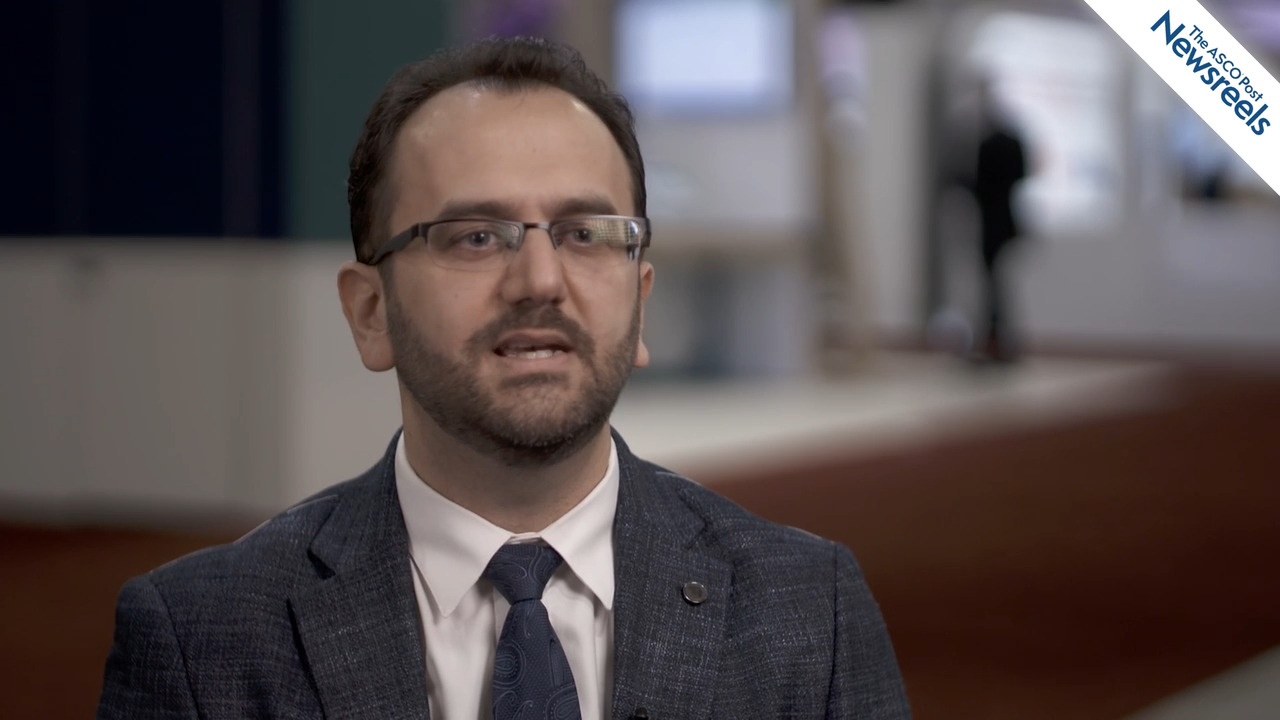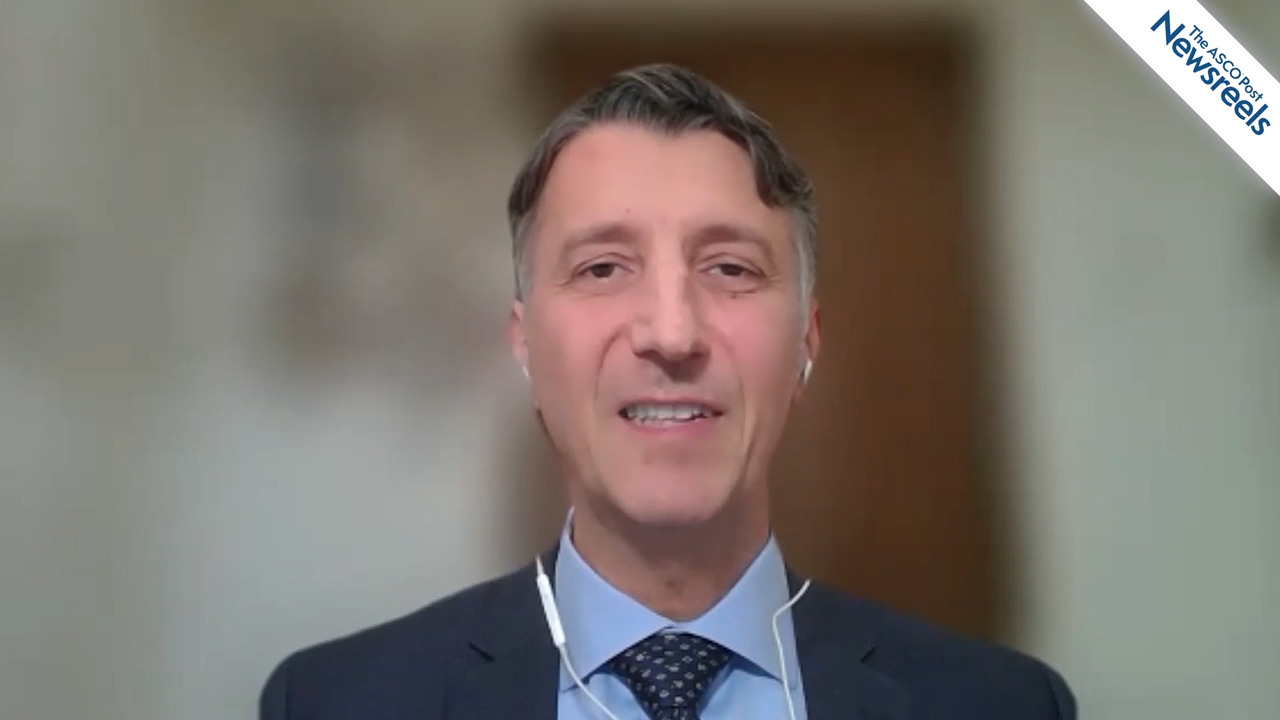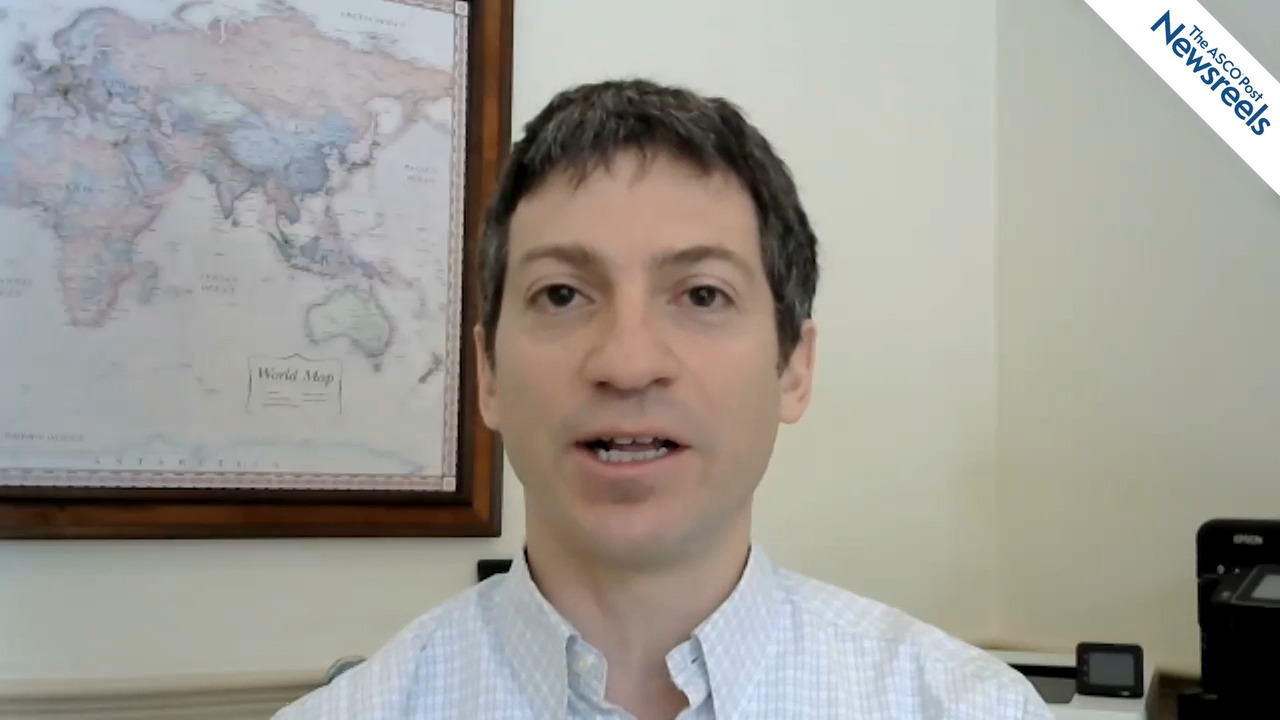Joe Schroers-Martin, MD, on Follicular Lymphoma: Precursor Mutations May Be Detectable Years Before Diagnosis
2021 ASH Annual Meeting & Exposition
Joe Schroers-Martin, MD, of Stanford University, discusses his latest study findings, which show that follicular lymphoma driver mutations are detectable in blood and saliva years prior to a clinical diagnosis. These data build on previous work and suggest that researchers may be able to stratify people at elevated risk of clinical malignancy (Abstract 709).
The ASCO Post Staff
Musa Yilmaz, MD, of The University of Texas MD Anderson Cancer Center, discusses study results suggesting that quizartinib with decitabine and venetoclax is active in patients with FLT3-ITD–mutated acute myeloid leukemia and that RAS/MAPK mutations continue to drive primary and secondary resistance (Abstract 370).
The ASCO Post Staff
Paolo Ghia, MD, PhD, of the Università Vita-Salute San Raffaele and IRCCS Ospedale San Raffaele, discusses disease-free survival results from the measurable residual disease cohort of the phase II CAPTIVATE trial. This multicenter trial focuses on first-line ibrutinib plus venetoclax in patients with chronic lymphocytic leukemia (Abstract 68).
The ASCO Post Staff
Daniel A. Ermann, MD, of the Huntsman Cancer Institute, University of Utah, discusses results from the largest retrospective study on outcomes utilizing radiotherapy in early-stage diffuse large B-cell lymphoma. Adding radiation to front-line multiagent chemotherapy was associated with a survival benefit for all patients with early-stage disease. An overall survival benefit was seen with the addition of radiation to front-line multiagent chemotherapy for patients with nodal involvement and those with specific extranodal involvement in the testes, thyroid, skin and soft tissue, and head and neck (Abstract 49).
The ASCO Post Staff
Matthew S. Davids, MD, of Dana-Farber Cancer Institute, discusses phase II results from a multicenter study that showed the efficacy of ibrutinib plus fludarabine, cyclophosphamide, and rituximab in younger, fit patients with chronic lymphocytic leukemia who desire the possibility of a functional cure with time-limited therapy (Abstract 640).
The ASCO Post Staff
Manali Kamdar, MD, of the University of Colorado Cancer Center, discusses phase III results from the TRANSFORM study, which suggest that lisocabtagene maraleucel, a CD19-directed CAR T-cell therapy, improved outcomes with a favorable safety profile and may be a potential new standard of care for second-line treatment of patients with relapsed or refractory large B-cell lymphoma (Abstract 91).





